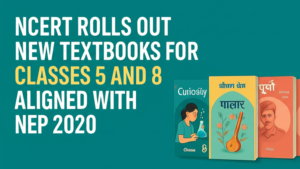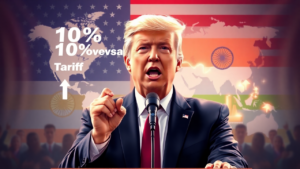A seemingly offhand comment by Union Commerce and Industry Minister Piyush Goyal recently stirred a pot that was simmering quietly in India’s ever-buzzing startup ecosystem. At the Startup Mahakumbh 2025, he pointedly remarked, “All our startups are doing food delivery and logistics. Where is the innovation? Where are the big tech ideas?” AajTak
And just like that, a firecracker exploded in the startup corridors of India.
But was he entirely wrong? That’s the question echoing across boardrooms, Twitter threads, co-founder coffee chats, and investor calls.
A Callout or a Wake-Up Call?

Goyal didn’t mince words. He was clearly frustrated, maybe even disappointed, when he said that India’s startup culture seems to be stuck in a loop of creating another food delivery app or betting platform. While the west and China race ahead with breakthroughs in electric vehicles, semiconductors, battery tech, robotics, and 3D printing, India, he argued, was still busy solving for your next biryani in 10 minutes. Jagran
It was blunt. It was bold. And it was controversial.
But was it unfair? That’s where things get interesting.
When Startup Founders Don’t Take It Lightly
Naturally, some feathers were ruffled. Many young founders took it as a jab at their years of hustle, pivots, sleepless nights, and their dreams. After all, food delivery or not, building a scalable startup in India isn’t exactly a walk in the park.
Aadit Palicha, the co-founder of Zepto, responded indirectly, saying that Indian founders need actual support and long-term vision from policymakers, not just criticism. LiveMint
He wasn’t alone. Some other startup voices called out the lack of infrastructure, funding, and government focus for deep-tech innovation — saying it’s easy to ask for innovation when the ecosystem isn’t built to support it.
But Some Big Names Stood With Piyush Goyal
Interestingly, not everyone was offended. In fact, some of India’s most well-known startup faces nodded in agreement.
Aman Gupta, co-founder of boAt and a Shark Tank India judge, not only shared the stage with Goyal but later publicly supported the remarks. NDTV
He said the message wasn’t about tearing down what’s been built, but about pushing founders to dream beyond lifestyle apps. “We need to aim higher,” he wrote in support. The Tribune
Bhavish Aggarwal, the founder of Ola, who is now exploring AI and energy tech, also backed Goyal. According to him, the startup ecosystem must now transition from consumer-first to technology-first ventures. Financial Express
Their message was clear: It’s not about putting down food delivery. It’s about daring to build something more ambitious, something that puts India on the global innovation map.
The Larger Question: What Is India’s Startup Culture Becoming?
This whole debate unlocked a bigger conversation: Are Indian startups playing it too safe?
Let’s be honest. India’s startup boom has been incredible — the unicorns, the exits, the Shark Tanks, the hustle culture — it’s inspiring. But has that boom also created a bit of a comfort zone?
It’s far easier to build a D2C brand, a dating app, or a delivery service than to take on climate tech, aerospace, or semiconductors — especially when deep-tech founders often struggle to even find one investor who understands what they’re building.
That’s the deeper truth Goyal might’ve been pointing at — unintentionally or not.
Government Promises and the Way Forward
To Goyal’s credit, he didn’t stop at criticism. In response to the stir, the Commerce Ministry announced a dedicated startup helpline that will allow entrepreneurs to raise corruption concerns, share ideas, or highlight challenges. Hindustan Times
This was seen as a direct attempt to bridge the trust gap between the government and India’s startup ecosystem — especially those building in areas like AI, robotics, space tech, and manufacturing.
It’s an encouraging sign. But, as always, the execution will be the real test.
So, Was Goyal Right or Wrong?
Maybe it’s not a matter of being right or wrong.
Goyal’s statement was a generalization — and yes, it discounted the complexity of running any startup, including logistics and delivery platforms. But it also asked an uncomfortable and necessary question: Are we dreaming big enough?
Startups like Zomato and Swiggy have built game-changing models — but can we now take that ambition and direct it at new frontiers?
Final Thought: Ambition is a Two-Way Street
Perhaps this debate isn’t really about criticism at all.
It’s about how ambitious our ecosystem allows our founders to be. About whether we have an environment that rewards risk in science, deep tech, or core R&D — not just another service-based app.
So maybe, just maybe, Piyush Goyal lit a fire where one was needed. Not to burn down what we’ve built, but to illuminate where we could go next.
References
- NDTV – Aman Gupta backs Piyush Goyal’s remark
- Financial Express – Bhavish & Aman back Goyal
- AajTak – Goyal’s original comment on food delivery
- Jagran – Criticism of startup culture
- LiveMint – Startup founders’ response
- Hindustan Times – Goyal announces startup support
- The Hindu – Startup community defends itself
- Times of India – Harsh Goenka on Goyal-Murthy uproar










